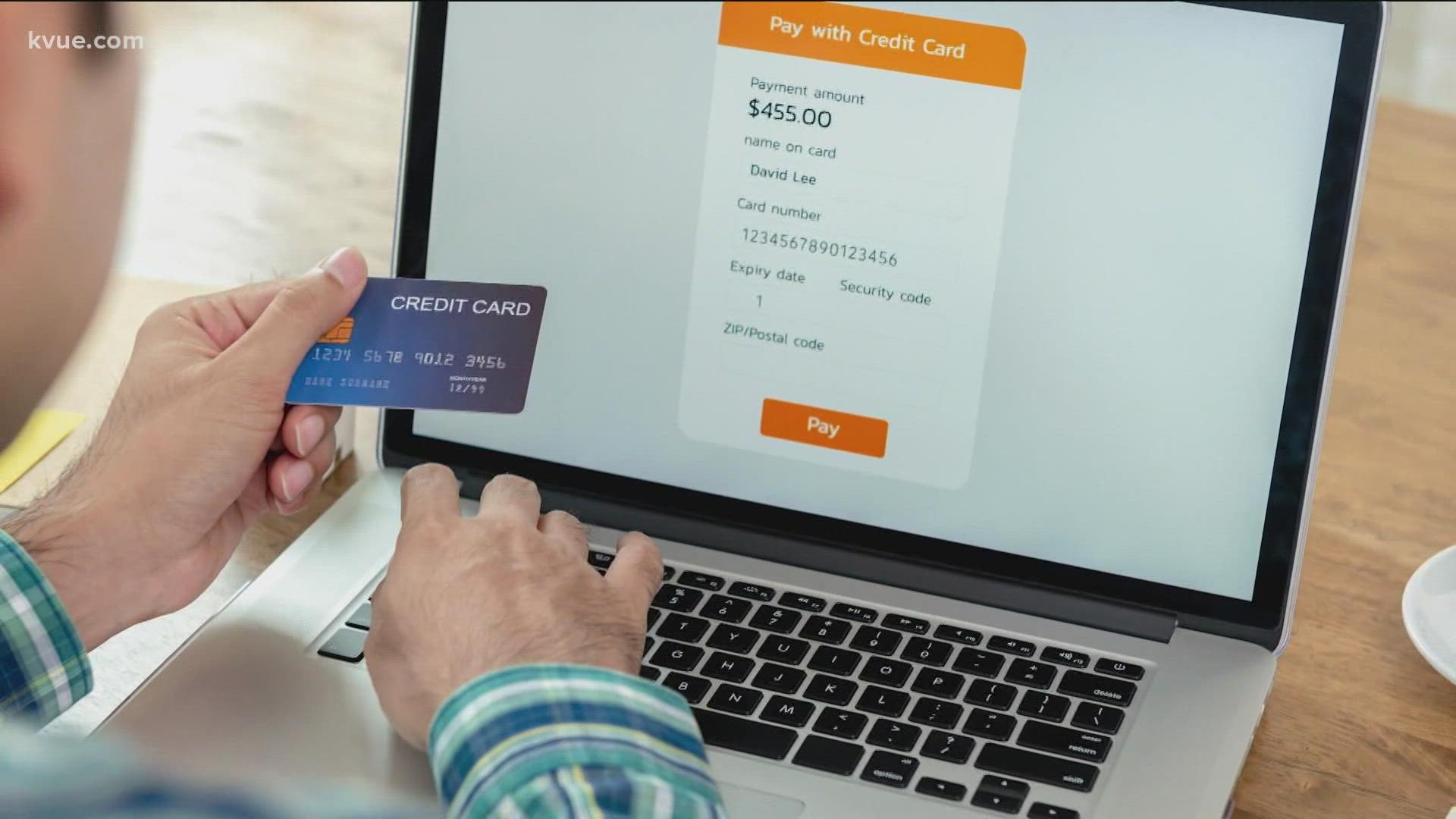AUSTIN, Texas — By the end of September, there were 1,291 reports of data breaches, according to the Identity Theft Resource Center.
That's more than in 2020, where 1,108 data breaches were reported. The all-time high was in 2017 when there were 1,529.
And as the holiday season approaches, experts predict a whopping $721.3 billion loss to identity theft by the end of the year. That's according to a report dubbed "U.S. Identity Theft: The Stark Reality."
The identity fraud prevention report also stated this year's loss is more than last year's amount of $712.4 billion.
To make sure you don't become a victim, we found a few of the most damaging fraud schemes people are falling for right now.
Fake retail sites
The first one is fake retail sites. This scam couldn't come at a worst time.
Haywood Talcove is a fraud prevention specialist and the CEO of Lexis Nexis Risk Solutions.
"It is the perfect storm. Right? We have the holiday season coming up. People want to buy presents for their children and we have a huge supply chain issues all across the country," said Talcove.
That perfect storm is driving people to search for hard-to-find items online when Amazon or big box stores sell out.
He said fraudsters have gone to great lengths to create real-looking e-commerce sites just to steal your credit or debit card info.
"We are seeing over a 2,000% increase in these fake website scams driven by the holiday season," Talcove said.
Talcove said it's best to stick to stores you know. And if that website doesn't take credit cards, that's a huge red flag.
Fake lab work scams
The second scam is on the rise and came about because of the pandemic. Frauds based on fake orders for lab work and medical tests.
"So here's how the scheme works, and it's really simple, and it's really hard to stop. So what the criminals are doing is they're stealing your PII, your personally identifiable information, and they're also stealing your health care information," Talcove said.
Talcove said this happens when unauthorized people get a hold of your information from your doctor's office.
He said he's seen instances where cleaning crews that work at night make copies of all the paperwork you fill out. Now, the crooks use that information, make fake appointments and steal money from Medicare/Medicaid and private insurers.
Talcove said consumers should call the insurance providers immediately and let them know you've been a victim of a scam. He also recommends calling the police department to file a police report and to notify the Federal Trade Commission.
Fake job postings
Around 14 million Americans have fallen for scam number three: fake job postings. The point here is to steal your unemployment benefits.
"You're going to get a call back a couple of days later and say, 'Congratulations, you've got the job! This is fantastic. We're really excited to have you start. But before we do, we need to validate your information. We need to make sure your paper works all in order. So please send us a copy of the following: your driver's license, your passport, your name, your Social Security number, your date of birth,'" Talcove said.
Talcove said never apply for a job where the website domain doesn't match the company's domain. He said you should also call the company's general number and ask to be transferred to the person who interviewed you.
Talcove said never give personal information over the phone. If the employer is real, you do that in person at the company office.
Other scams
Other scams to watch out for include phishing ones targeting homebuyers.
Using phishing techniques, criminals find a way into your email account when you're in the process of buying a home. On closing day, they send an email that appears to be from the escrow company with the wire details. There is almost no recourse for people who fall victim to this scam, and it often robs people of their entire life savings.
Another scam is the account takeover fraud scheme.
In these cases, the criminal finds a way into one of your existing accounts – a bank account, PayPal or Venmo. They then change the bank account and address and phone number, ultimately making it very difficult for you to even get back into your own account.
PEOPLE ARE ALSO READING:

